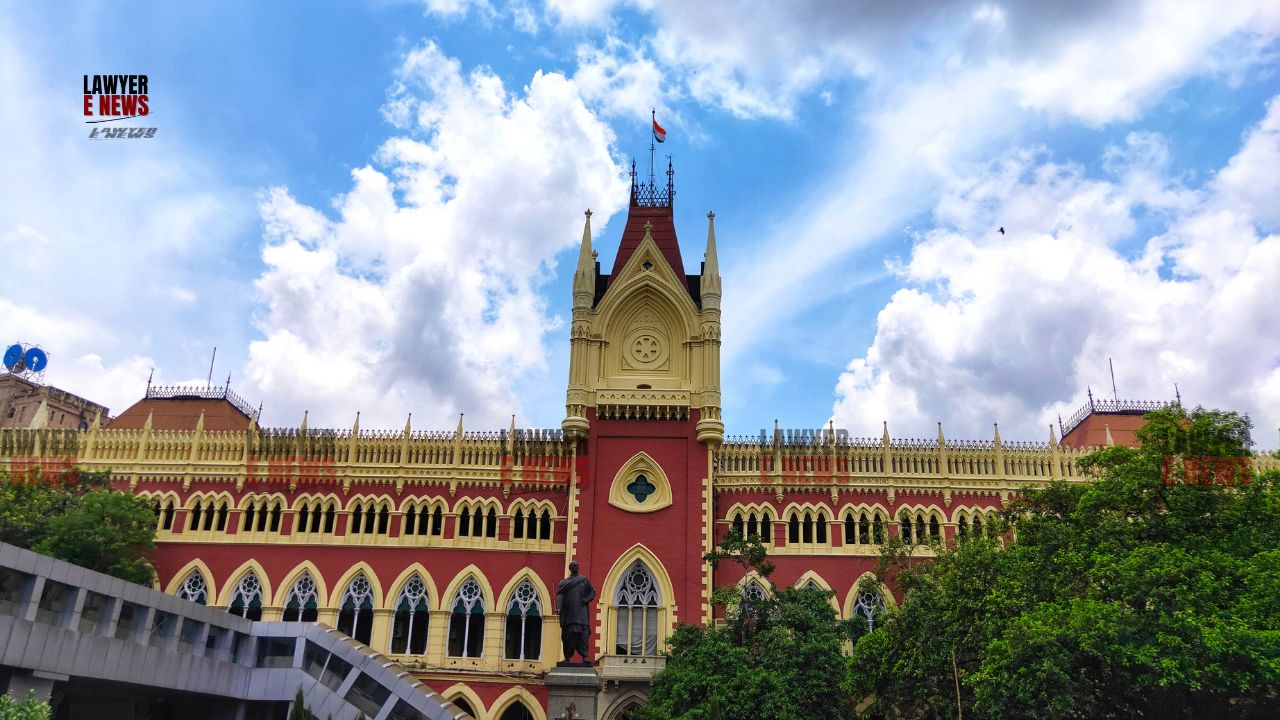-
by Admin
15 February 2026 5:35 AM



"Rules of 2018 Have No Applicability to Unaided Minority Schools as They Fall Outside the Definition of 'School' Under Section 2(n) of the West Bengal School Service Commission Act, 1997"
Calcutta High Court, in a landmark decision, ruled that the Convent of Our Lady of Providence Girls’ High School—a Christian minority unaided institution—was not bound to follow the West Bengal Board of Secondary Education (Appointment, Confirmation, Conduct and Discipline of Teachers and Non-Teaching Staff) Rules, 2018 ("Rules of 2018") in disciplinary proceedings against two Assistant Teachers. Justice Biswajit Basu held that applying such rules to unaided minority institutions would violate their constitutional right to autonomy under Article 30(1) of the Constitution of India.
The court also clarified the limited applicability of Rule 28(8) of the Management of Recognized Non-Government Institutions (Aided and Unaided) Rules, 1969 ("Management Rules of 1969") to unaided minority schools. The disciplinary proceedings were upheld, and petitions challenging the enquiry report were dismissed.
The dispute revolved around disciplinary proceedings initiated by the school against two Assistant Teachers for alleged misconduct. The teachers argued that the proceedings violated the Rules of 2018 and Rule 28(8) of the Management Rules of 1969. They had earlier challenged the enquiry report in separate writ petitions, which culminated in orders from the Supreme Court. The Supreme Court had set aside their termination orders and allowed the school to continue the disciplinary process after serving the enquiry report and affording them a fair hearing.
The school, asserting its status as a Christian minority institution, argued that it was an unaided private school and not bound by the Rules of 2018 or the approval requirements under Rule 28(8) of the Management Rules of 1969. This position was supported by the West Bengal Board of Secondary Education during the hearings.
Applicability of Rules of 2018 to Unaided Minority Institutions: The teachers contended that the disciplinary proceedings should comply with the Rules of 2018. However, the school argued that the rules were inapplicable as the institution did not fall under the definition of "school" in Section 2(n) of the West Bengal School Service Commission Act, 1997.
Scope of Rule 28(8) of the Management Rules of 1969: The teachers claimed that the school was bound to follow Rule 28(8), which required prior approval from the Board for disciplinary actions. The school countered that such rules infringed upon its constitutional right under Article 30(1).
Effect of the Supreme Court’s Orders: The teachers argued that the Supreme Court’s direction to "proceed further" implied a fresh enquiry. The school maintained that the term "proceed further" meant continuing from the existing enquiry report, without starting anew.
Justice Biswajit Basu examined the definition of "school" under Section 2(n) of the West Bengal School Service Commission Act, 1997. He noted that unaided minority institutions do not fall under this definition, and therefore, the Rules of 2018, promulgated under this Act, have no applicability. The court stated:
"An un-aided school run by a minority community, like the said school, since does not come within the purview of the definition of ‘school’ under the said Act of 1997, the Rules of 2018 have no manner of application in respect of the said school."
The court further emphasized that the receipt of government aid, such as dearness allowance for teachers, does not affect the minority status or autonomy of the institution under Article 30(1).
The court ruled that Rule 28(8) of the Management Rules of 1969, which required prior approval from the Board for dismissals, did not bind minority institutions as it interfered with their constitutional autonomy. Referring to Frank Anthony Public School Employees’ Association v. Union of India (1986) and Chandana Das (Malakar) v. State of West Bengal (2020), the court held:
"The Hon’ble Supreme Court... has held that the said Rule 28 of the Management Rules of 1969 cannot apply as there would be a serious infraction of the right of the minority institution to administer the institution with teachers of its choice."
However, the court clarified that Rule 28(8) applied to the limited extent of ensuring reasonable facilities for the defense of delinquent employees, consistent with principles of natural justice.
The court rejected the teachers' argument that the Supreme Court’s order necessitated a fresh enquiry. Justice Basu observed:
"The direction to 'proceed further' unmistakably suggests the service of the enquiry report already on record; by no stretch of imagination can the said direction be construed as a direction to hold the subject disciplinary proceedings de novo."
The court added that the teachers’ earlier writ petitions challenging the enquiry report had been disposed of without setting it aside, and any renewed challenge was barred by the doctrine of constructive res judicata.
WPA 7329 of 2023 (Teachers' Petition): The petition challenging the enquiry report and disciplinary proceedings was dismissed. The teachers were directed to respond to the enquiry report within two weeks.
WPA 7894 and WPA 7897 of 2022 (School's Petitions): The school’s challenge to the constitutional validity of the Rules of 2018 was dismissed as not pressed, as the Board had clarified the inapplicability of these rules to unaided minority institutions.
The High Court of Calcutta reaffirmed the constitutional autonomy of minority educational institutions under Article 30(1) of the Constitution. By exempting such institutions from the Rules of 2018 and prior approval requirements under Rule 28(8), the judgment strengthens the ability of minority schools to manage their internal affairs without undue interference.
Date of Decision: January 8, 2025
